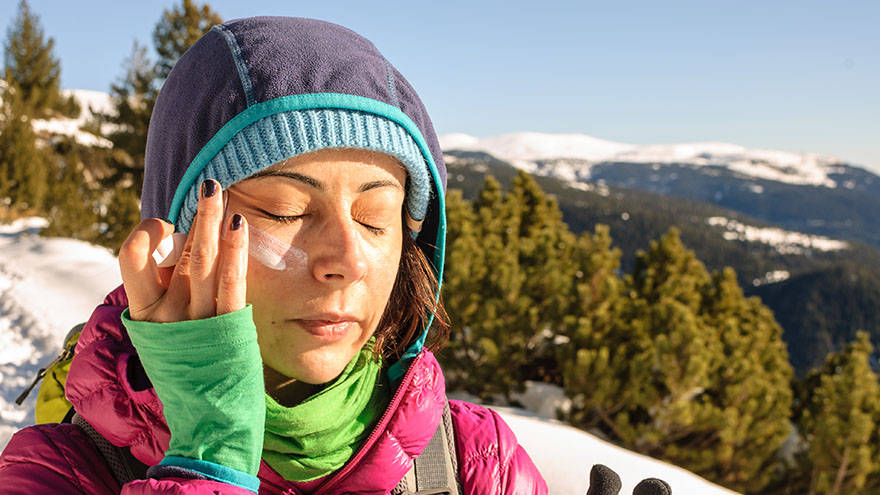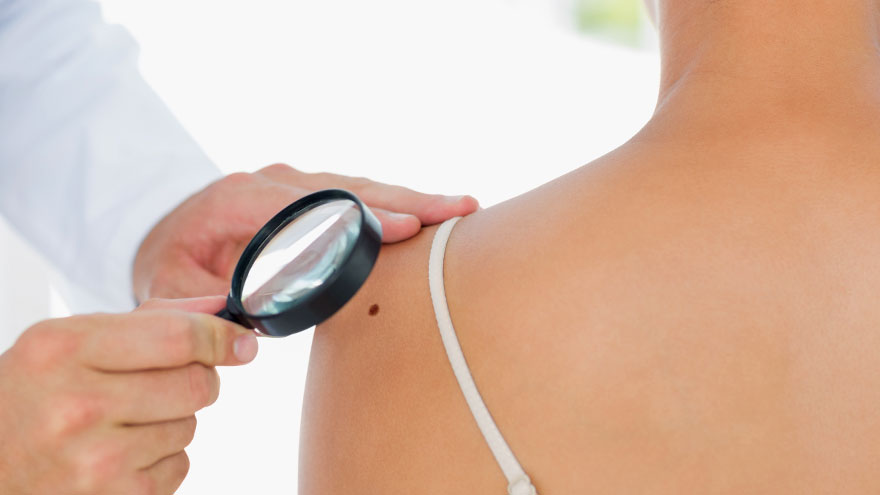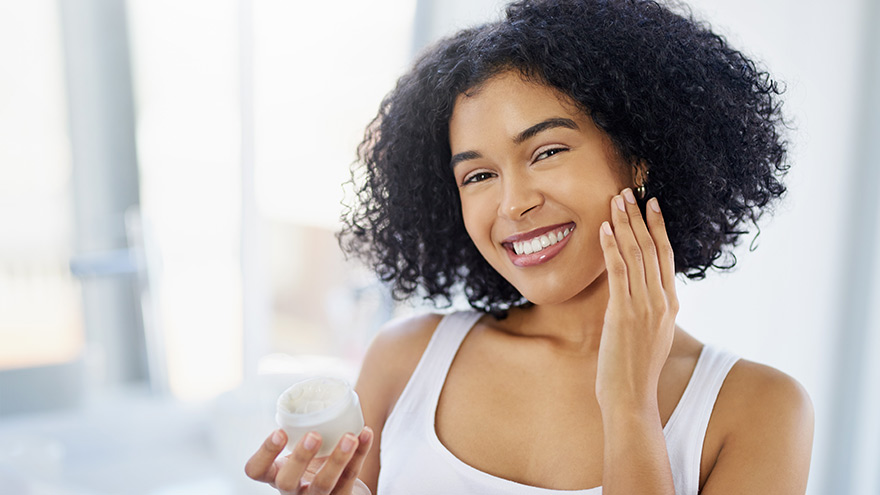Search
-
Renown Dermatology
At Renown Dermatology, Laser & Skin Care, our experienced providers offer a wide range of services, coupled with advanced medical technology. Skincare services include dermatology and competitively-priced treatments and procedures. Our professional and compassionate staff focuses on promoting lifelong health and wellness in a relaxing, modern atmosphere.
-
Skin Care Specials
Seasonal Specials to Help You Stay on Point Revamp your glow without breaking the bank at Renown Health Dermatology! Explore our array of skin care products and services designed to make you look and feel sensational. Swing by our South Reno office to check out our latest product lines. Our skincare experts are on hand to help you navigate your beauty routine and answer all your questions. Dive into our summer specials, available until July 31, 2024. Why not indulge yourself or surprise a friend? Gift certificates are ready and waiting—perfect for any occasion!
-
Hospice Care
When medical treatments no longer offer a cure, Hospice Care offers a special way to care for you and your family who are faced with a life-limiting illness. Serving Washoe, Lyon, Storey and Carson Counties, our team is available 24 hours a day, seven days a week. Hospice staff receive special training to care for all types of physical and emotional symptoms that cause pain, discomfort and distress. When considering your options for end-of-life transition, our team is available to answer questions and discuss if Renown Hospice Care will meet your needs. Your hospice care team includes Medical Director Registered Nurses Certified Nursing Aides Medical Social Workers Chaplains Registered Dietitians Trained Volunteers
-
Winterize Your Skin with These 5 Easy Expert Tips
Winter skin alert – cold temperatures can put your skin into chaos. We asked for skin tips from Heidi Nicol, an esthetician with Renown Dermatology, Laser & Skin Care. She shares how to keep your skin glowing through the frosty months ahead. With the change from warm to cold weather, your skin can get stressed out. In fact, issues like flaky skin, irritation and chapped lips can be an everyday struggle. 5 Easy Winter Skincare Tips 1. Re-think your shower Few things feel better on a cold day than a long, hot shower. But hot showers can lead to dry skin because they strip your skin of its natural protective oils. Avoiding them altogether is best – choose a lukewarm, or warm, shower instead. If you have an occasional hot shower, the American Academy of Dermatology (AAD) suggests keeping it at five to ten minutes. Nicol recommends using a gentle cleanser and avoid using too much. Moisturizing after a shower or bath while your skin is still damp is also a must. Slathering on your favorite lotion helps your skin hold on to precious moisture. 2. Stay away from smoke and fire Although sitting close to a roaring fireplace can feel good, it is drying to your skin. Smoking and exposure to smoke also harms your skin. Smoking reduces healthy blood flow to the skin. This also causes your skin to wrinkle faster, making you looker older. Additionally your skin heals much slower if you smoke. 3. Consider a humidifier Cranking up the thermostat dries out indoor air. Skin is our largest organ, and in general, heat is very drying to your skin. To clarify, over time dry air degrades your skin’s natural moisture (lipid) barrier leading to flaking, peeling and cracking. Your skin can overcompensate for the dryness by producing even more oil. In other words it is possible for your skin to be both oily and dehydrated at the same time. Even oily skin needs a daily lightweight, non-pore clogging moisturizer. 4. Use SPF daily The sun’s rays damage your skin even on cloudy days. Sunlight contains UVB (burning) and UVA (aging) rays. Although UVB rays are less strong in the winter, the UVA rays are same strength all year. And snow can reflect almost 90% of UV radiation. With this in mind make sure you have suitable skin and eye protection when going outdoors. 5. Take care of your hands and feet Don’t forget your fingers and toes when moisturizing. These areas tend to be drier than other parts of the body. Gloves help to protect hands from winter weather and lock in moisture. Similarly, putting lotion on your feet before your socks will keep them your skin from flaking and cracking. Follow the tips above to make sure your skin is at its best, despite the winter weather. Renown Dermatology, Laser & Skin Care | 775-982-8255 Renown Dermatology, Laser & Skin Care offers a comprehensive range of treatments and products to address any skin care need. Visit our beautiful office in south Reno and browse our product lines. Experts are available to answer any questions concerning your skin care and health and wellness needs.
Read More About Winterize Your Skin with These 5 Easy Expert Tips
-
Grief and Bereavement Resources
Feelings of grief can take on many forms and can occur in reaction to many situations, including the death of a loved one or a medical diagnosis for yourself or someone close to you. It is important to remember that this reaction is entirely natural, and many people who experience grief find outside help to be a valuable part of the healing process. Below is a list of both local and national grief and bereavement resources for all ages and specificities. If you or someone you know is experiencing grief, the trained professionals below are here to help. Solace Tree Support groups for children and teens (ages 3 to 18), young adults and their family members. For more information visits solacetree.org/grief-programs or call 775-324-7723. Healing Minds Counseling services for those coping with the loss of a loved one or major life change. For more information visit healingminds.com/grief-counseling-reno-nv or call 775-448-9760. Circle of Life Hospice Support groups open to the community held the first and third Tuesday of every month. Fore more information visits colhospice.com/bereavement-and-spiritual-care or call 775-827-2298. Summit View Hospice Grief and bereavement support open to the community-groups, memorials and by mail. For more information visit summitviewhospice.com or call 775-636-9598. The Compassionate Friends Monthly support group on the second Monday of each month for families after a child dies. Fore more information visit facebook.com/TheCompassionateFriendsofReno, compassionatefriends.org or call 775-750-7005. Healing for Survivors of Suicide Links and resources for those who have lost a loved one to suicide. For more information visit survivingsuicide.com GriefShare Grief recovery support groups meeting weekly both in-person and online with options in Reno/Sparks, Carson City and rural cities. For more information www.griefshare.org National Alliance for Grieving Children Resources for parents and caregivers to help children navigate the challenges of bereavement and grow into healthy adults. For more information visit nacg.org/resources-and-support/ Mourning Hope Grief Center Grief support groups, counseling, resources and COVID-19 support for children, adults and families before and after a death loss. For more information visit mourninghope.org Crisis Support Services of Nevada 24/7, free, confidential and caring support to people in crisis across Nevada and the U.S. For more information visit cssnv.org, call 775-784-8090 or text CARE to 839863 National Alliance on Mental Illness-Warmline A stigma-free, non-crisis phone service you can call or text that is staffed by trained peers in recovery. For more information visit namiwesternnevada.org/resources/ or call 775-241-4212. Vitas Healthcare Grief and bereavement resources and support groups both virtual and phone-in. For more information visit vitas.com/family-and-caregiver-support or call 866-489-0583. St. Mary’s - Hospice We Promise Resources on grief for all groups including children to adults, trauma, caregivers and more. For more information visit hospicewepromise.com/topics/grief or call 775-525-6700. Mountain View Mortuary Grief support and tools available to assist you in your healing journey including “365 Days of Healing” email list for daily support and comfort. For more information visit mountainviewmortuary.net/resources/grief-support or call 775-788-2199 Sesame Street – Helping Kids Grieve Discover games, videos and more on topics important to you and your child. For more information visit sesamestreetincommunities.org/topics/grie Trauma Intervention Program-Northern NV A national non-profit organization of volunteers dedicated to ensuring those emotionally traumatized receive assistance. For more information visit tipnnv.org/about-tip/resources Pregnancy & Infant Loss Support Organization A non-profit organization dedicated to the support of families who have lost a baby through miscarriage, stillbirth or neonatal death. For more information visit pilsos.org Caring Info A program of the National Hospice & Palliative Care Organization providing free resources to help people make decisions about end-of-life. For more information visit nhpco.org/patients-and-caregivers/
-
5 Easy Winter Skincare Tips
Winter skin alert – cold temperatures can put your skin into chaos. We asked for skin tips from Heidi Nicol, an esthetician with Renown Dermatology, Laser & Skin Care. She shares how to keep your skin glowing through the frosty months ahead. 1. Re-think your shower Few things feel better on a cold day than a long, hot shower. But hot showers can lead to dry skin because they strip your skin of its natural protective oils. Avoiding them altogether is best – choose a lukewarm, or warm, shower instead. If you have an occasional hot shower, the American Academy of Dermatology (AAD) suggests keeping it at five to ten minutes. Nicol recommends using a gentle cleanser and avoid using too much. Moisturizing after a shower or bath while your skin is still damp is also a must. Slathering on your favorite lotion helps your skin hold on to precious moisture. 2. Stay away from smoke and fire Although sitting close to a roaring fireplace can feel good, it is drying to your skin. Smoking and exposure to smoke also harms your skin. Smoking reduces healthy blood flow to the skin. This also causes your skin to wrinkle faster, making you looker older. Additionally your skin heals much slower if you smoke. 3. Consider a humidifier Cranking up the thermostat dries out indoor air. Skin is our largest organ, and in general, heat is very drying to your skin. To clarify, over time dry air degrades your skin’s natural moisture (lipid) barrier leading to flaking, peeling and cracking. Your skin can overcompensate for the dryness by producing even more oil. In other words it is possible for your skin to be both oily and dehydrated at the same time. Even oily skin needs a daily lightweight, non-pore clogging moisturizer. 4. Use SPF daily The sun’s rays damage your skin even on cloudy days. Sunlight contains UVB (burning) and UVA (aging) rays. Although UVB rays are less strong in the winter, the UVA rays are same strength all year. And snow can reflect almost 90% of UV radiation. With this in mind make sure you have suitable skin and eye protection when going outdoors. 5. Take care of your hands and feet Don't forget your fingers and toes when moisturizing. These areas tend to be drier than other parts of the body. Gloves help to protect hands from winter weather and lock in moisture. Similarly, putting lotion on your feet before your socks will keep them your skin from flaking and cracking. Follow the tips above to make sure your skin is at its best, despite the winter weather.
-
Prevent Breakouts by Keeping Your Makeup Tools Clean
Did you know that your makeup brushes are likely full of built-up dirt and bacteria? Using dirty makeup tools can lead to irritation, breakouts and even infections. The good news? It's completely preventable. An expert explains For anyone who regularly wears makeup, brushes are great tools for powdering, contouring and finishing touches. Unfortunately, these same brushes also harbor harmful bacteria that can clog pores and cause unwanted breakouts. “Brush hairs and sponges are porous, and hold on to oils, debris and bacteria,” says Heidi Nicole, medical esthetician with Renown Dermatology, Laser & Skin Care. “Also, if they are dirty, the application of makeup can be spotty and make blending more difficult." Most dermatologists suggest that you clean your makeup brushes at least once a week. Because they are used on your face, it makes sense to keep them as a clean as possible. In addition, your brushes will last longer if you stay on top of cleaning them. Six simple steps to integrate makeup brush care into your beauty routine: Wet your brush with lukewarm water. (Don’t soak your brushes, as water in the brush barrel can cause the hairs to fall out.) Place a drop of gentle cleanser or specialized brush cleaner in the palm of your hand. Gently massage the tips of the bristles on your palm. Rinse the bristles well. Blot with a clean towel and reshape the head. Let the bristles dry over the edge of a counter. Do not allow the bristles to dry on the towel, which could cause the brush to mildew. Store your brushes in a clean, dry place in between uses.
Read More About Prevent Breakouts by Keeping Your Makeup Tools Clean
-
11 Easy Ways to Prep Your Skin for Spring
As we begin to enjoy the springtime weather in northern Nevada, are you finding your skin less than tip-top shape? Here’s how to add moisture back in easy, natural ways. You don’t need to be a medical aesthetician: Dry, cold climates can often wreak havoc on your body’s largest organ — your skin. These tips from Renown Dermatology, Laser & Skin Care will quickly put moisture back and relieve dry, chapped skin. 11 Miraculous Moisturizing Tips Always wear broad-spectrum sunscreen, even during winter months. Don’t forget to use an SPF lip balm, too. Heaters dry out your skin. Use a humidifier to keep moisture in the air. (And try these simple tips to make sure you’re keeping that humidifier clean.) If your skin is dehydrated, try using a nighttime moisturizer during the day. Use a hydrating mask or moisturizing mask twice a week. Don’t forget your hands and feet. Apply a rich cream to the hands and feet at night and cover them with gloves and socks to restore moisture while you sleep. Drink plenty of water to stay hydrated. Try adding a hydrating serum to your morning and nighttime skincare routine to heal the skin. Use a gentle exfoliant to remove dry skin at least once a week, which helps your skin absorb your moisturizer. Apply body oil or lotion in the shower while your skin is still damp to trap moisture. Hot water dries out your skin, so turn down the temperature in the shower and bath. A little pampering goes a long way, and Renown’s medical aestheticians are here to help. Trained in skincare and advanced therapies, our experts can transition your skin to look healthy, youthful and rejuvenated.
-
Are You Using the Right Sunscreen?
Seeking protection for yourself and your loved ones from the intense sun rays at northern Nevada's elevated altitudes? With so many choices available, selecting the ideal sunscreen can be daunting. To guide you through this, we consulted Dr. Angela Walker, a dermatologist from Renown Medical Group, for her expert insights. Sunscreen Application Dermatologists recommend a broad-spectrum sunscreen with a minimum SPF of 30, but keep in mind that no sunscreen protects against 100 percent of UV radiation and that reapplication is necessary. “No matter the SPF, sunscreen must be applied adequately and frequently, meaning a quarter-sized amount to cover the face and neck and a full shot glass amount for the body when wearing a bathing suit,” said Walker. “Reapplication should be every 80 minutes.” Why not use a high SPF, such as 70 or 100? According to the Skin Cancer Foundation, they don’t offer significantly more protection than SPF 30 and mislead people into thinking they have a higher level of protection. Here’s the breakdown: SPF 15 blocks 93 percent of UVB rays SPF 30 blocks 97 percent of UVB rays SPF 50 blocks 98 percent of UVB rays SPF 100 blocks 99 percent of UVB rays Do specific populations require a higher SPF? Walker explains that infants, seniors, and those with a history of skin cancer must take precautions against UV radiation, as their skin is vulnerable. Sunscreen should be an absolute priority before spending time outdoors and avoiding prolonged sun exposure, wearing a hat with wide brim (recommended 4-inch brim) and UPF (ultraviolet protection factor) clothing. Due to the sensitive nature of an infant’s skin, babies under six months should not spend time in the direct sun. For infants and toddlers six months and older, whose skin is thinner than adults, a sunscreen that contains zinc oxide or titanium dioxide (physical protectors) should be applied. Zinc and titanium are less likely to irritate because they do not penetrate the skin and instead sit on the surface and deflect UV radiation. Zinc oxide and titanium dioxide are vital ingredients to seek out in sunscreen due to their strong ability to deflect UV radiation. Sunscreen Terms Explained UVA = Long wave ultraviolet light. Penetrates deep into the dermis, the skin’s thickest layer, causing tissue damage that wrinkles and photo-aging and contributes to developing skin cancer. UVB = Short wave ultraviolet light. The biggest contributor to the development of skin cancer and are more prevalent during mid-day. SPF = Sun protection factor. Calculated by comparing the amount of time needed to burn sunscreen-protected skin vs. unprotected skin. So, SPF 15 means you can stay in the sun 15 times longer than you could without protection.
-
Learn to Spot Skin Cancer
With skin cancer affecting one in five Americans and 3.5 million new skin cancer cases diagnosed yearly, being proactive about prevention is vital to your health. Dr. Angela Walker, a dermatologist with Renown Dermatology, Laser and Skin Care, explains. The 5 stages of melanoma How should someone examine their skin for moles? I recommend practicing monthly head-to-toe self-examination of your skin, so you can find any new or changing moles or marks that might be cancerous or precancerous. Skin cancer is the most common of all cancers. It is also the easiest to cure if diagnosed and treated early. Therefore, self-examination can alert you to changes in your skin and aid in early skin cancer detection. Self-examination tips: Make sure you have a bright light, full-length mirror, hand mirror and a blow-dryer. Examine your face, especially your nose, lips, mouth and ears, both front and back. Thoroughly inspect your scalp, using a blow-dryer and mirror to expose each section. You might need to get a friend or family member to help. Check your hands carefully: palms and backs, between the fingers and under the fingernails. Continue up the wrists to examine your forearms' front and back. Standing in front of the full-length mirror, begin at the elbows and scan all sides of your upper arms. Don't forget the underarms. Next, focus on the neck, chest and torso. Women should lift their breasts to view the undersides. With your back to the full-length mirror, use the hand mirror to inspect the back of your neck, shoulders, upper back and any part of the back of your upper arms you didn't already check. Scan your lower back, buttocks and backs of both legs. Check the front and sides of both legs, thigh to shin, ankles, tops of feet, between toes and under toenails. Examine the soles of feet and heels.
-
7 Morning Skin Care Tips for All-Day Protection
We talked to Heidi Nicol, licensed aesthetician with Renown Dermatology, Laser and Skin Care, to learn about the 7 best morning skincare tips that will provide all-day protection. “Your skin uses the nighttime hours to repair itself, secreting oils and toxins in the process,” says Heidi Nicol, a licensed aesthetician with Renown Dermatology, Laser and Skin Care. “Cleansing your skin in the morning is very important. It removes these oils and toxins and any nighttime products you use that are not suitable for daytime use — such as retinol and exfoliating acids.” Nicol’s process includes choosing the right products for your skin type, using them in the proper order and applying them correctly. Steps to Perfect Your Morning Routine Step 1: Cleanser. Use a cleanser tailored to your skin type. Many lines of products produce unique formulas for your specific skin, including dry skin, oily skin, and a combination of the two. Be sure to rinse, rinse, and rinse again! Step 2: Toner. After cleansing, you should apply a toner quickly. This is like a big drink of water for the skin and helps trap moisture into your skin and prevent evaporation. Step 3: Serum. Choose a serum that addresses your skin’s needs. If you use more than one type of serum, alternate them instead of layering. Nicol recommends using a Vitamin C serum, an antioxidant serum, and hydrating serums. Step 4: Moisturizer. Select a daily moisturizer that fits your skin type. Step 5: Eye Cream. “A good eye cream is refreshing and can help the delicate skin around the eyes,” says Nicol. Step 6: Sunscreen. This is the most essential step when it comes to protecting your face. Some sunscreens come tinted, which can replace foundation. “Do not forget to also apply to the neck, chest, and hands,” says Nicol. “It is important to reapply every few hours when you are out in the sun.” Step 7: Makeup. After you’ve completed the above steps, proceed with your make- up routine. This is a crucial step for protecting your skin. Many aestheticians recommend wearing makeup every day.
Read More About 7 Morning Skin Care Tips for All-Day Protection











